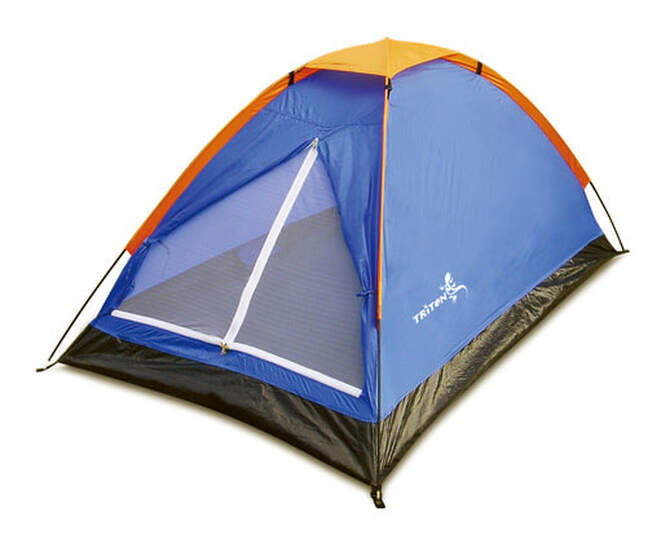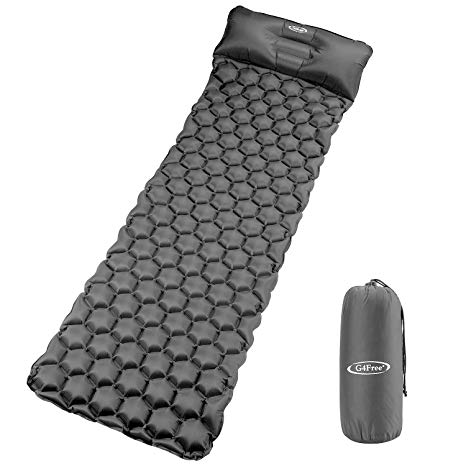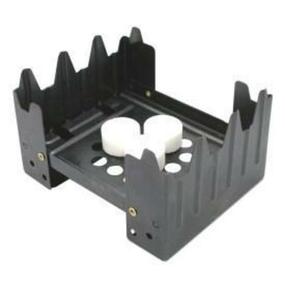Deciding what to pack depends on how many days you decide to take on the trail. The more days you take, the more supplies you will need and therefore the heavier your pack. Trailrunners can complete these trails in one go with water and snacks. However if you are not a runner and want to complete the trails in one go, camping is the only option, so you'll need a tent, sleeping mat, pillow and sleeping bag. You will also need to decide how much food and snacks you will bring along. Some trails have kiosks or restaurants along the way which will give you an opportunity to skip bringing some meals but no matter how you look at it, you will have to bring pans, a heat source and utensils. Dehydrating food is a great option to bring your weight down, but this requires a machine and preparation beforehand. If you don't have a dehydrator, go for dried meals that just require water such as cup noodles, although as many of these don't have much nutrition and come with chemicals you are best dehydrating your own. You don't have to spend a fortune on getting your kit together though if you shop sensibly, and with a bit of preparation you can get your pack down to around 10kg. Your knees will thank you for it.
Camping
oLightweighting your camping gear is essential as you'll be taking on some serious elevation and if you are loaded the downhills will rip your knees apart. There are ultralight tents that weigh in at 1kg or under out there that come with a hefty price tag. Some ultralight options have no poles and can be kept upright with hiking poles. A lightweight alternative would be a hammock, mat or a bivy bag and a mosquito net. Slinging a hammock can be tricky though, as you need an ideal distance between trees and a diameter of trunk that is not too wide.
Triton Mono 2. Light enough at 1.2kg but won't last long and don't take it camping if rain is forecast.
A real source of weight and space in your pack can be your sleeping mat, however a comfortable option is essential after a long day of hiking. You could go light and take a foil mat but you might as well sleep on the ground. G4Free sell an excellent option online on Amazon. It rolls up extremely compact and weighs in at under half a kilo. Additionally it inflates with a pillow.
G4Free mat from Amazon
Your sleeping bag is a real consideration, the lower the temperature rating, the bulkier and heavier the sleeping bag. Luckily Hong Kong is warm enough most of the year to take a small light sleeping bag with a high temperature rating or even go without. You'll need something at 15 degrees rating or lower for a comfortable sleep between January and March, especially as you'll no doubt be in the New Territories where temperatures can drop into the single figures.
Food
A dehydrator can be bagged for around 200HKD on Taobao and is well worth the investment. Any meal can be cooked then dehydrated. This shrinks the meal and reduces it's weight by around two thirds. A good option for breakfasts is to cook porridge with milk and some honey. Dehydrate it, then blend it with some cashew and other nuts. Add broken chocolate and dehydrated fruit such as banana, mango, apple or grapes. Separate into as many portions as you need. When you add water the milk will come back to life and it's more satisfying that just water and oats. For snacks I cook porridge with milk and add salt and some sugar or honey. I then press biscuit shaped portions onto the dehydrator plate. Push in some nuts, chocolate and dried fruit before dehydrating into biscuits. Loading your dehydrated food with nuts will offer a good calorie per weight ratio. For meals I like to dehydrate spaghetti bolognaise, curries and stews with lots of meat and vegetables. Mix in the cooked pasta or rice before dehydrating and separating into batches. Add water at your site and leave for 10 minutes to re-hydrate then cook until boiling. Lunch poses more of a problem. You don't want to be cooking on the trail and you need something quick and easy. Tortilla wraps are more compact than bread, so I usually fill one of these with some cheese and tuna. The can of tuna will add weight but the olive oil is a good source of energy.
Most cooksets are aluminium so will be lightweight. The camping stores in Hong Kong are overpriced and you can pick up a decent alumium cookset on Shanghai Street (Kitchen Street) for 30-40 HKD. Two small pans are good, in the morning you can cook your porridge and then swap your pan for water for coffee, heating both from 3 Hexamine tablets. Also pick up some some Korean metal chopsticks, good for stirring and adjusting your heat source, as well as a metal Chinese soup spoon. A small aluminium cup too, if you want coffee. Measure out your coffee and sugar into a small Tupperware beforehand and skip the milk, or add dried milk powder.
For heat, ignore gas and a stove which will add unnecessary weight. A small emergency stove is compact and perfect for simple cooking on the trail. You will need some hexamine tablets for a heat source and take three for each meal you need to cook plus three extra just in case. Remember a lighter, and take a ferrocerium rod for sparks just in case.
Most cooksets are aluminium so will be lightweight. The camping stores in Hong Kong are overpriced and you can pick up a decent alumium cookset on Shanghai Street (Kitchen Street) for 30-40 HKD. Two small pans are good, in the morning you can cook your porridge and then swap your pan for water for coffee, heating both from 3 Hexamine tablets. Also pick up some some Korean metal chopsticks, good for stirring and adjusting your heat source, as well as a metal Chinese soup spoon. A small aluminium cup too, if you want coffee. Measure out your coffee and sugar into a small Tupperware beforehand and skip the milk, or add dried milk powder.
For heat, ignore gas and a stove which will add unnecessary weight. A small emergency stove is compact and perfect for simple cooking on the trail. You will need some hexamine tablets for a heat source and take three for each meal you need to cook plus three extra just in case. Remember a lighter, and take a ferrocerium rod for sparks just in case.
Emergency stove and hexamine tablets
Water
Water will be your main source of weight but there's nothing you can do about that. A 2 litre hydration pack should hold enough water between sources, although in the drier or hotter months, 3 litres may be safer. A water filter is invaluable. I carry a mini Sawyer which is light and reliable. Some fellow thru-hikers carry a Steripen which is much quicker as it sterilises the water with a UV light, however it is electronic which means a dead battery or broken device could leave you drinking straight from the streams. Spike your water with a decent amount of salts such as Aquarius. Aquarius doesn't have as much sugar as Pocari, one sachet of which has the equivalent of five cans of cokes-worth of sugar.
Clothes
One change of clothes should suffice and you can wash your clothes at a public toilet or stream with your bar of soap. Remember a hat, the sun can be brutal on some exposed parts of the trails. Light rain jacket that folds into a pouch if rain is forecast. Think absolute minimal when it comes to clothes.
Toiletries
One small toothbrush and small toothpaste. One small soap. A small hiking towel the size of a facecloth. Toilet roll. That's your lot.
Medical
Suncream. Small tub of Vaseline to avoid chafing. Small amount of antiseptic cream. Blister plasters and/or tape. A safety pin for bursting blisters. Ibuprofen/codeine or some other strongish painkillers, you'll need these to push through the final stage on some of your tougher days. You may wish to take a first aid pack but I find most of the contents unnecessary.
Electronics
Phone, portable charger. A headtorch is an absolute must and take some spare batteries.
Navigation
The four main trails are well marked. There are five Country park maps available for a good price but you won't need these if you follow the markers or check google maps. A compass won't be necessary on these trails.
Money
No need for a wallet. Some currency to pay for restaurant/kiosk food and snacks and an Octopus card for transport and vending machines is all you need.
The Argyle Ross Trail
The Argyle Ross trail is a different kettle of fish to the other main trails. You will need to carry your gear in a dry bag for swimming, so going light is essential. A hammock and mosquito net is the first to go in. We recommend sea to summit ultralight hammock and seperate mosquito net which packs incredibly small. You will need gloves to protect hands from the sharp coral, and investing in a pair of Vibram Aqua or similar will offer grip on the streams and protection in the sea. Goggles will help you identify any sea urchins or sharp rocks as you swim into a coast. You can take a small sleeping bag, but you can get by without in the summer. For cooking, a foldable net grill, ferocirium rod and cotton wool for starting a fire and small pan will do, but an emergency stove and hexamine tablets will also suffice if it's wet. There will be access to water most of the way so you won't need to carry much at one time but will need 2L capacity at least and a water filter unless you are happy to drink the streams straight. A portable charger is important, and a first aid kit as you should expect some injuries on the way.


